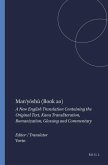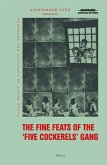The introduction of writing enables new forms of literature, but these can be invisible in works that survive as manuscripts. Through looking at inscriptions of poetry on garbage and as graffiti, we can glimpse how literature spread along with writing. This study uses these lesser-studied sources, including inscriptions on pottery, architecture, and especially wooden tablets known as mokkan, to uncover how poetry, and literature more broadly, was used, shared and thrown away in early Japan. Through looking at these disposable and informal sources, we explore the development of early Japanese literature, and even propose parallels to similar developments in other societies across space and time.
Bitte wählen Sie Ihr Anliegen aus.
Rechnungen
Retourenschein anfordern
Bestellstatus
Storno








